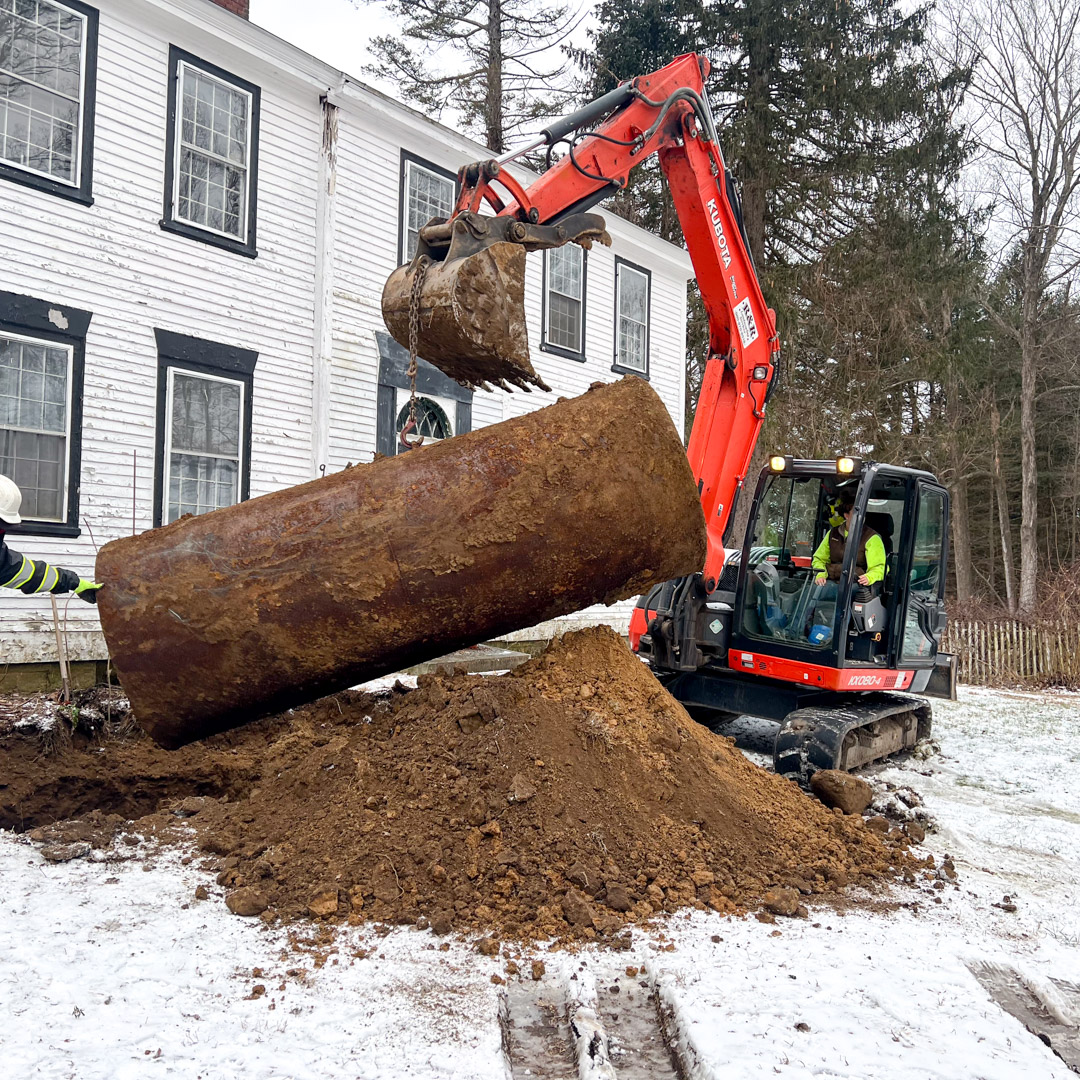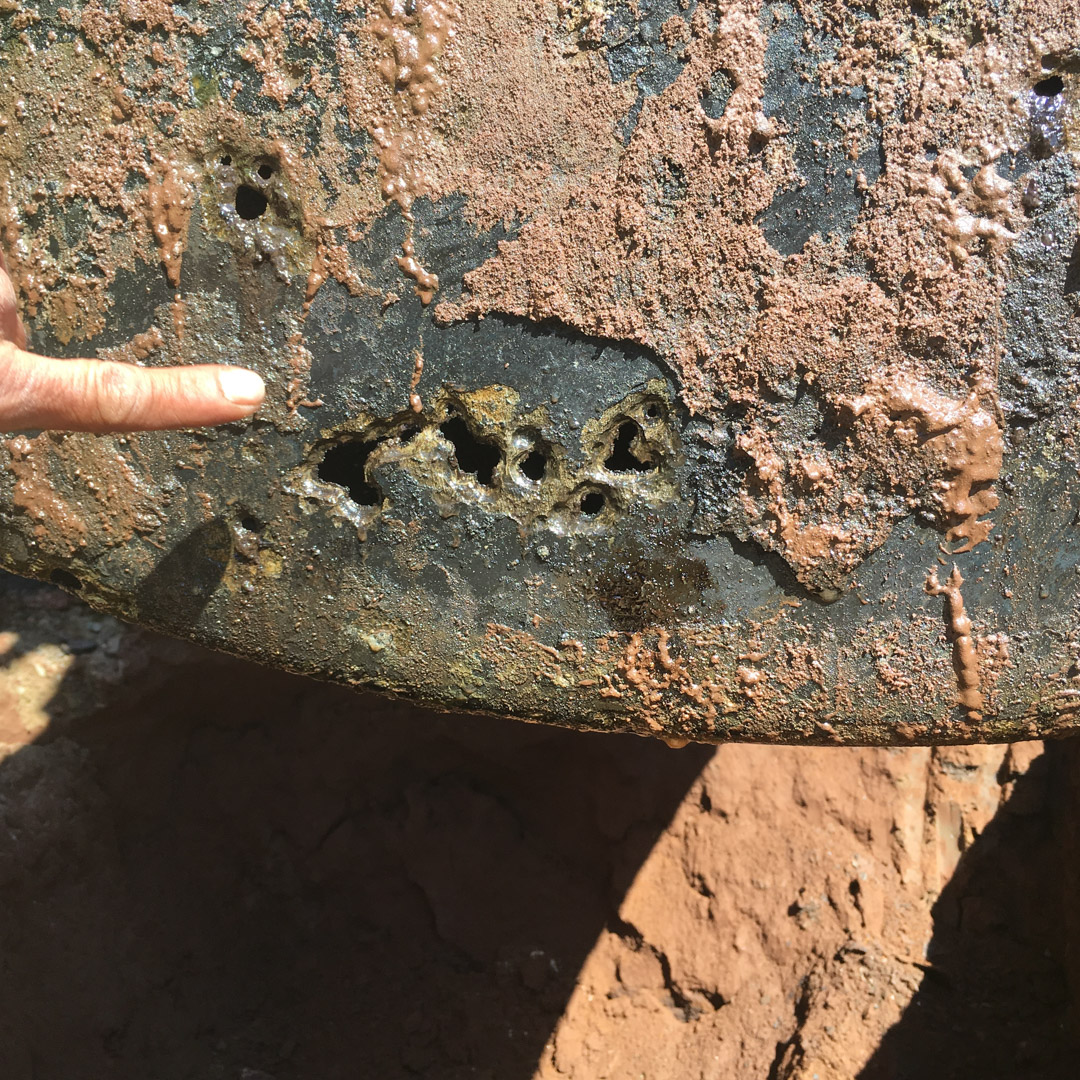The pros at R&R offer Underground Storage Tank removal throughout Hartford, Middlesex, New Haven, and Tolland Counties, including towns like Windsor Locks CT, Bloomfield CT, Vernon CT, Ellington CT, East Hartford CT, Berlin CT, Glastonbury CT, and Hebron CT.
 Nearly half of us in the United States rely on groundwater for our drinking water. Leaking underground storage tanks (LUSTs) are the single greatest threat to these invaluable sources of life. Underground storage tanks corrode far more quickly than above ground storage tanks. When corrosion results in a leak it can leech dangerous chemicals into the water table that may take years to successfully remove.
Nearly half of us in the United States rely on groundwater for our drinking water. Leaking underground storage tanks (LUSTs) are the single greatest threat to these invaluable sources of life. Underground storage tanks corrode far more quickly than above ground storage tanks. When corrosion results in a leak it can leech dangerous chemicals into the water table that may take years to successfully remove.
There have already been more than 400,000 confirmed underground storage tank leaks in the U.S. according to New York State’s Attorney General. A survey in 1998 by the DEC discovered that already more than 800 private wells had been contaminated by gasoline leaks and spills in New York State along. The threat of more underground storage tank leaks increases every year since there are approximately 1.2 million underground storage tanks nationwide that were installed before the Environmental Protection Agency (EPA) increased regulations on them in 1988. These older tanks, without anticorrosion coating, are far more susceptible to leakage.
How does a leaking underground tank pollute soil and water?
When an underground tank has a leak, the gasoline or oil inside seeps into the surrounding soil and can make its way into the water table. Since gasoline and oil aren’t as dense as water, they float on the surface of the water table. In relatively low temperatures, it can become a vapor because it is a volatile compound.
This highly flammable and explosive gas can saturate soil, travel through sewer lines and seep into buildings posing a serious risk of fire and explosion along with being a contaminant.
Why does leaking oil from an UST pose a threat to drinking water?
One of the greatest threats to public health from water contaminated by petroleum products such as gasoline and oil are the BTEX hazardous compounds they contain: benzene, toluene, ethylbenzene, and xylenes. Of these hazardous compounds, benzene is the most dangerous because of the high risk of developing cancer from bathing in and drinking water that contains it.
MTBE (methyl tertiary butyl ether) is an additive in gasoline that makes water unfit for human consumption and is potentially dangerous. Along with the unpleasant taste and odor of water that has been contaminated by MTBE, it is classified as a potential carcinogen. The presence of MTBE in water is one of the earliest signs of a contaminating leak because it generally travels through water faster than the other components in gasoline.
When should I take action if I have an underground oil tank on my property?
Replacing an old underground storage tank before a leak has occurred is the best way to protect yourself, your neighbors, and the environment from a gasoline or oil leak.
In many cases, excavating your tank is the surest way to discover if any contamination has occurred that needs to be remediated. The greatest disadvantage of having an underground storage tank is that by the time signs of a leak are evident the extent of contamination is extensive and will be costly clean up.
 Though Connecticut’s Department of Energy & Environmental Protection (DEEP) does not require property owners to replace their underground storage tank before a leak is found, you are required to quickly take action once a leak is discovered. It will then be your responsibility to clean up all of the resulting pollution even if it extends to others’ property.
Though Connecticut’s Department of Energy & Environmental Protection (DEEP) does not require property owners to replace their underground storage tank before a leak is found, you are required to quickly take action once a leak is discovered. It will then be your responsibility to clean up all of the resulting pollution even if it extends to others’ property.
Professional Tank Removal Services In Central CT
If you have an underground storage tank that needs to be removed, contact us at R&R Landscaping, Tank and Tree Removal! We have more than 30 years of experience safely removing underground storage tanks and providing remediation when necessary for home owners and business owners throughout central Connecticut. For more information, visit our Underground Oil Tank Removal page or contact us at (860) 870-8518.


